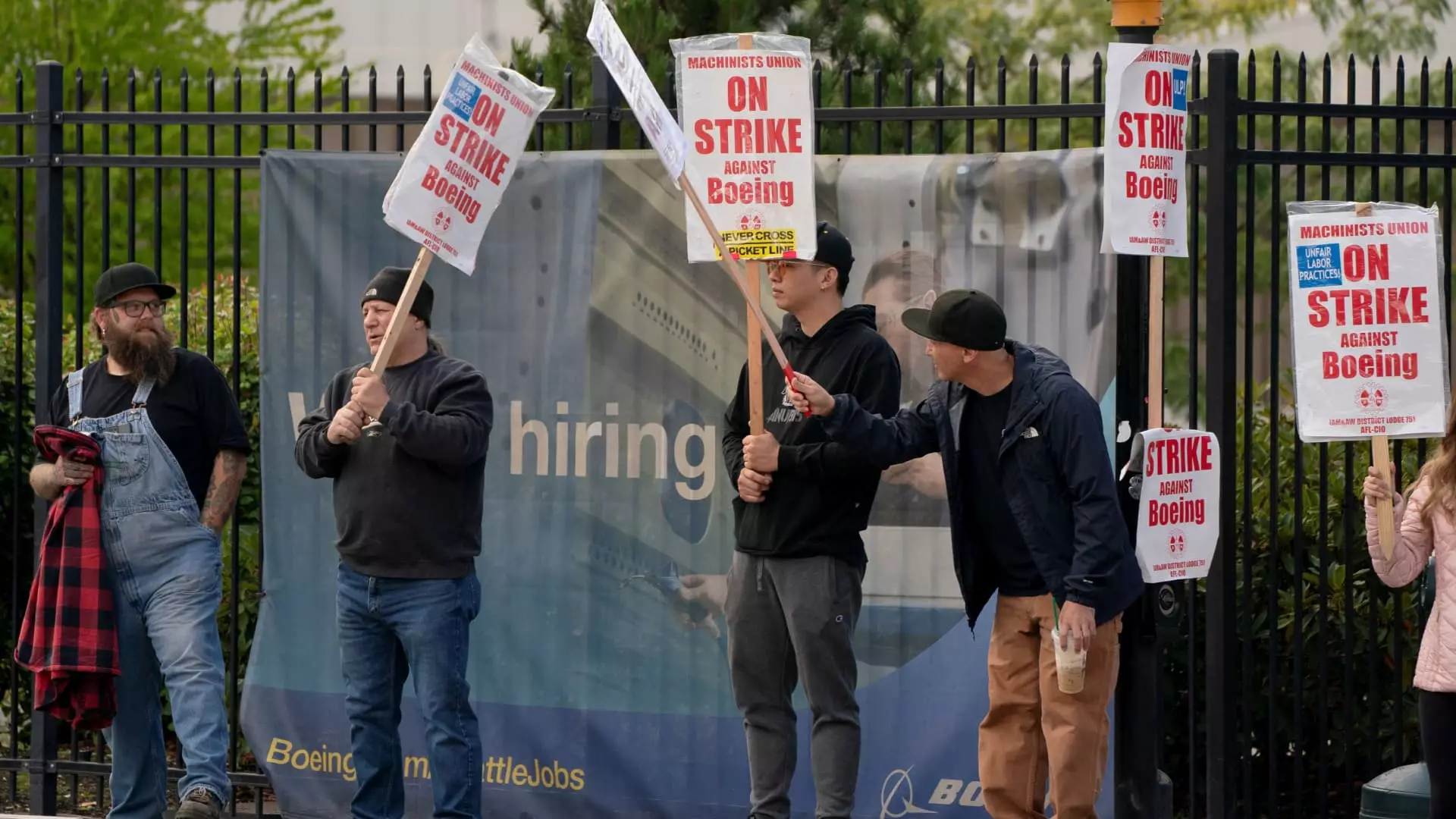Boeing has recently faced an unprecedented situation as over 30,000 factory workers initiated a strike, halting key production lines in its Seattle facilities. The decision to strike came after employees collectively rejected a tentative labor agreement, showcasing the growing dissatisfaction among workers. In light of these developments, Boeing has unveiled a series of extensive cost-saving measures, including a hiring freeze and cuts to supplier spending. This shift in strategy is crucial for preserving cash flow during a period of operational instability.
CFO Brian West made the situation clear in a recent communication to staff, indicating that significant reductions in supplier expenditures will take place, primarily affecting orders for various jetliner models including the 737 Max, 767, and 777. This proactive move signifies not only the immediate financial considerations Boeing must navigate but also highlights the far-reaching implications for their extensive network of suppliers heavily reliant on Boeing for their own livelihoods. The potential ripple effect could hinder the overall aerospace supply chain, as many suppliers may face constraints due to decreased order volumes.
In his message, West emphasized Boeing’s commitment to negotiating a new contract that adequately reflects employee feedback while striving to restore normal operations. The urgency of the situation is palpable, as continued industrial action threatens to undermine the company’s recovery efforts after a tumultuous first half of the year, which was marred by production slowdowns and significant financial losses, including an $8 billion cash burn. This outlook necessitates a strategic balancing act, where Boeing must address worker concerns without compromising its financial stability.
Moreover, the strike’s symptoms extend beyond immediate operations and threaten Boeing’s credit ratings, as evidenced by Moody’s recent review for possible downgrades. Fitch Ratings has echoed this sentiment, warning that a prolonged strike might escalate financial risks, raising borrowing costs for a company already navigating a heavy debt load. This precarious financial footing accentuates the urgency for Boeing to stabilize its workforce dynamics and regain momentum.
As the likelihood of extended industrial action looms, West’s mention of potential temporary furloughs for various categories of employees indicates the severe measures Boeing may need to take. The decision to furlough workers is not one made lightly; it reveals the potential financial strain on the company and underscores the operational disruption caused by labor disputes. Still, West reassured stakeholders that investments in safety, quality, and customer support would persist, striving to maintain operational integrity amidst the ongoing challenges.
Boeing is at a pivotal crossroads, where effective management of employee relations and financial strategy will determine its path forward. The strike marks a critical juncture, and how Boeing navigates through this turmoil will be vital not only for its immediate recovery but also for the long-term health of the aerospace industry. Through clear communication and a commitment to collaborative resolution, Boeing can hope to emerge from this crisis not just intact, but stronger than before.

